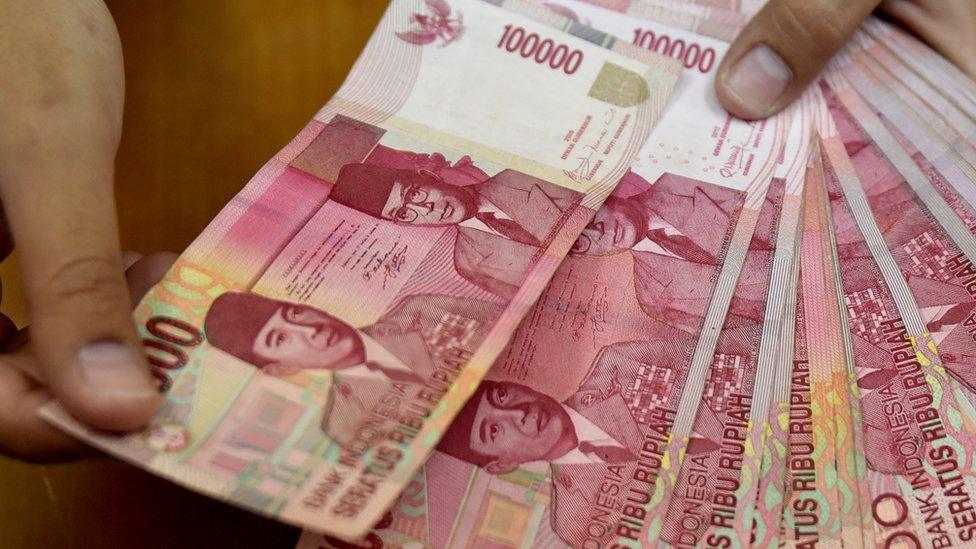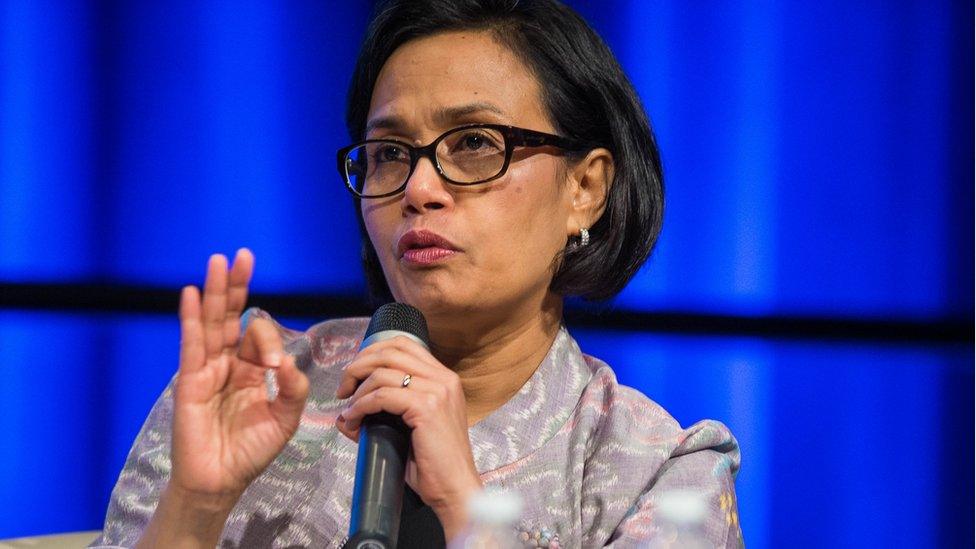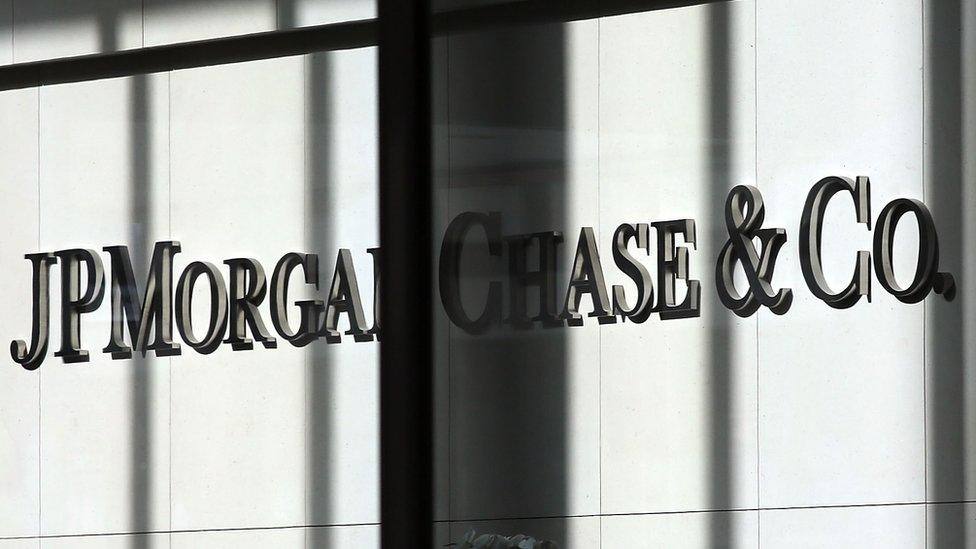Indonesia up in arms over being downgraded by JP Morgan
- Published

"We are not shutting ourselves off to external assessment - we need it to improve ourselves," said Sri Mulyani Indrawati, Indonesia's Finance Minister during a recent press conference in Jakarta. "But institutions with big names have big responsibilities - they need to create a positive psychology."
It is surprising, to say the least, to hear these sorts of comments from Ms Indrawati. She is no debutante on the international financial stage; she's a former managing director of the World Bank, and widely respected in the international business community.
Surely, I thought, she knows how this works.
Investment banks regularly make calls or recommendations on equities or stocks. In this particular case, towards the end of last year JPMorgan Chase released a report about the global implications of Donald Trump's victory - and downgraded its rating on Indonesian equities from overweight to underweight - which effectively is a recommendation to sell Indonesian shares.
But Indonesia wasn't alone in getting the downgrade - Turkish equities saw their rating shift to underweight and Brazil's to neutral.
The fact that Brazil was given a better weighting than Indonesia has got finance ministry officials in Jakarta up in arms, external.
Some have said JPMorgan's analysis of the equity market "does not make sense" and that the bank's assessment of Indonesia's economic fundamentals isn't "credible" - reasons, presumably, that have been behind Indonesia's decision to cut some business ties with JPMorgan.
Ms Indrawati has spoke of the "special privileges" that JPMorgan has had in Indonesia - and suggested that as partners, those privileges come with accountability.

Indonesian Finance Minister Sri Mulyani Indrawati says JPMorgan's privileges come with responsibilities
Meanwhile, JPMorgan has said in an emailed statement to the BBC that its business in Indonesia continues to operate as usual, and that the impact on clients is minimal. The bank has also said it is working with the Ministry of Finance to resolve the matter.
It is true that JPMorgan has a plum spot in Indonesia - it is one of the largest foreign banks operating in the country, and has been responsible for collecting penalty payments for the tax amnesty programme the government has launched.
It is also one of the biggest distributors of Indonesian government bonds overseas - and this may be one of the biggest reasons why the government was so irate.
"On one hand JP Morgan makes commissions selling Indonesian government bonds," said Eric Sugandi, chief economist at SKHA Institute for Global Competitiveness in Jakarta, "but at the same time it writes a report basically advising to sell Indonesian equities."
"From an investment bank's perspective, maybe it seems like Indonesia is treating JP Morgan badly. But from Indonesia's perspective, it feels like a betrayal."
Still, Indonesia's reaction does seem harsh. JPMorgan is completely within its remit to provide independent research reports to clients about a country that it is also advising. Research and investment arms of banks are supposed to be separate and operate independently.
But part of the problem, as independent analyst Andy Xie told me, is that the balance of power between emerging markets governments and Western financial institutions has shifted over the last decade.
"Western banks aren't respected any more in emerging Asia, not like they were ten years ago," says Mr Xie.
Independent research?
Mr Xie knows first hand what it's like to get punished by a government for his views. He left his job at Morgan Stanley in Singapore after a disparaging internal memo he wrote about the country was leaked.
"Western banks have lost credibility since the 2008/2009 financial crisis," he told me.
"Many people don't believe what the reports say, or whether they are independent. This didn't happen with JPMorgan and Indonesia - but the unfortunate thing is that sometimes there are banks who will make a call on a stock or a country only to reverse that in a few days time - and you just have to see who has made the most money on that trade and connect the dots - often it's a client of the same institution."

Privately, many in the industry concurred with Mr Xie's assessment. As one banker said to me "it's wrong, but it happens." Business is so bad these days, some former bankers have said to me, that often the research units of investment banks are badly financed and need to find a way to justify their existence.
While these sorts of suspicions about the wider banking industry may help to explain Indonesia's reaction, the truth is most market analysts are in broad agreement that the country is likely to be hit by an outflow of foreign cash under a Trump presidency.
The economics are simple - rising interest rates in the US will see a flow of funds from emerging markets like Indonesia to American assets, searching for higher returns.
But that logic may not be enough to persuade Indonesia's finance ministry.
"We know we aren't perfect," Ms Indrawati concludes in her remarks to the local press in Jakarta. "But we will improve in an accountable and open manner. And we want our partners to be like us - responsible, and accountable."
- Published22 December 2016